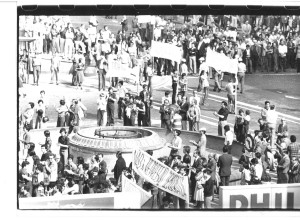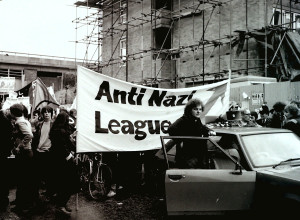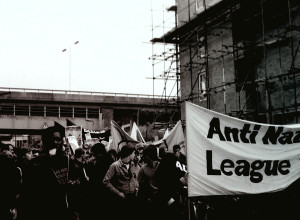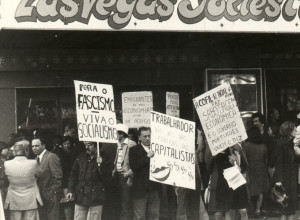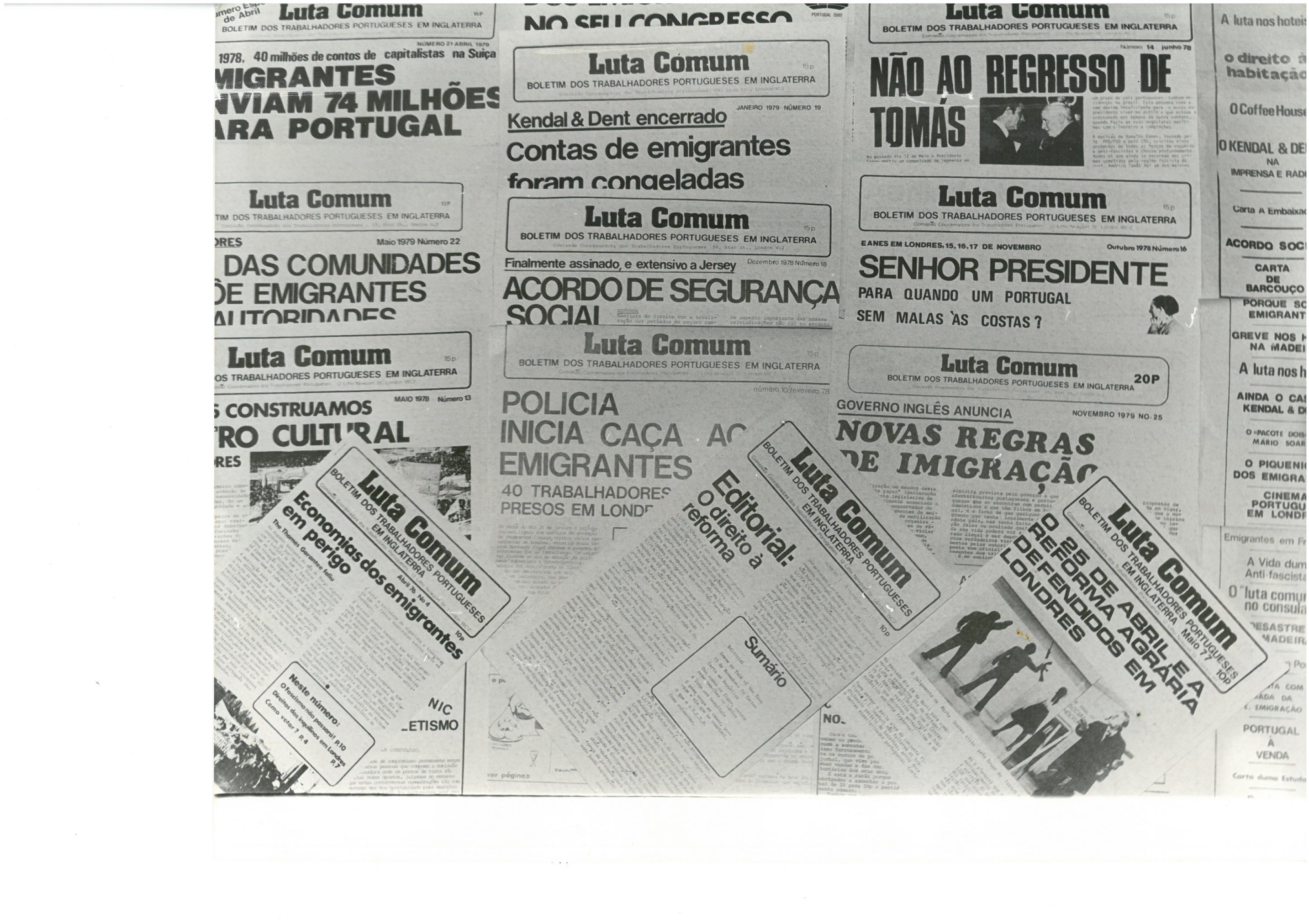
Once again, we would like to mention the C.P.I. Fund, donated by Álvaro de Miranda, Adriana Peixoto and João Monjardino, an archive of great importance and interest that includes countless documents of various types that reflect the activities linked to anti-fascism, anti-colonialism and trade unionism carried out by a group of Portuguese democrats who emigrated to England in the 1960s and 1970s, bringing together refractory activists, political exiles and emigrants. In this archive, there is a subsection dedicated to the production of the bulletin entitled "Luta Comum" (Common Struggle), created following the extinction of another bulletin called "Our Common Struggle", which in the words of Álvaro de Miranda (London, Oct. 2016) "was aimed at the labour movement and the British left and its objective was to explain the Portuguese revolutionary process, especially the workers' struggle, and try to generate solidarity with it. At the time, the British workers' movement was very active and there were grassroots organisations in the workplace that were somewhat independent of the leadership, around shop stewards.
We focused our activity essentially on this movement. This time was also in the early stages of the globalisation of the manufacturing industry and Portugal served as a source of cheap labour not only through emigration but also because many companies moved the most labour-intensive parts of their production to Portugal. This was particularly the case in the electronics industry and several British, North American, German and French companies had set up factories in Portugal. In the revolutionary period that followed immediately after 25 April, many of these multinational factories were occupied, such as Plessey (British), ITT (North American). We tried to put the workers occupying the branches of the multinationals in Portugal in contact with the shop stewards of the factories of these companies in Great Britain. We were particularly successful with Plessey, at that time the largest British telecommunications and electronics company. (...) When we decided that it wasn't worth continuing to publish Our Common Struggle, we thought that we needed a source of information for Portuguese emigration, which had increased substantially in the meantime, and we decided to start a newspaper for emigration, the name of which was the exact translation of the publication we had produced in English for over a year, Common Struggle. The first issue came out in the same month that we published the last issue of Our Common Struggle, December 1976.
We have selected five photographic documents from this archive, some of which are evocative of the present day, pervaded by an anti-democratic haze, in the hope that the will to counteract it will be born somewhere, just as it was in London in the 1970s:
- Image 1: photographic document FT02529 | positive| b&w| Composition of various covers of the Luta Comum newsletter
- Image 2: photographic document FT02531 | positive| b&w|Donor's caption: "Porto 10 June 1978. Demonstration by a hundred fascists in the city of Porto. This demonstration was broken up by around 1,500 democrats and anti-fascists who opposed the fascists' endeavours. One of the placards read 'No to democratic repression'."
- Image 3: photographic document FT0016 || positive b&w|Demonstration organised by the Anti-Nazi League, London.
- Image 4: photo document FT0017 | positive| b&w| Anti-Nazi League demonstration, London.
- Image 5: photographic document FT02499 | positive| p&b|Demonstration during the revolutionary period against the event organised by the Kendal and Dent bank, at London's Victoria Palace theatre, attended by figures linked to the Estado Novo, such as Kaúlza de Arriaga, Galvão de Melo, Silvino Silvério Marques, businessman Jorge Jardim and Franco Nogueira.
Álvaro de Miranda's account of the episode:
"Luta Comum had a particular success of which we are very proud. A
After the 25th of April, the regime's ultras were still plotting to return to power.
return to power. In London there was a strange bank that had focussed its financial
financial activity on Portuguese emigrants, offering them interest rates
on deposits in savings accounts that were higher than normal. It was called Kendal
and Dent. We were convinced that there were economic forces linked to the
capitalists who had fled Portugal after the 25th of April behind it.
24 behind it. Our suspicions were confirmed when the bank appeared
in one of London's best-known theatres, the Victoria Palace, a big show with the participation of
with the participation of famous artists from the old days of
Salazar's old days, but also ultras from the previous regime. The cast included the comedian
Badaró, who had emigrated to Brazil after the 25 April Revolution, and Amália Rodrigues.
London had undoubtedly been chosen because many of the 25 April escapees had
had settled there and because Portuguese emigrants had a reputation for being
conservative. Among the characters on the platform were the former
General ultra of Salazarism Kaúlza de Arriaga, Galvão de Melo, Silvino Silvério
Marques, businessman Jorge Jardim, and former Fascist regime minister Franco Nogueira.
We organised a protest picket outside the theatre together with the Centro
25 April Centre. Some emigrants who had come to the show because, they told us,
liked fado, when they learnt about the content of the event, they decided not to enter
and offered us their tickets. A small group of us went in to watch.
When Kaúlza de Arriaga stood up to give his speech, they started shouting:
"Fascist!" The entire audience of the practically full theatre joined in
shouting in chorus with our group and the organisers were forced to remove
Arriaga and immediately brought Amália Rodrigues onto the stage to calm the tempers by
and start singing."
